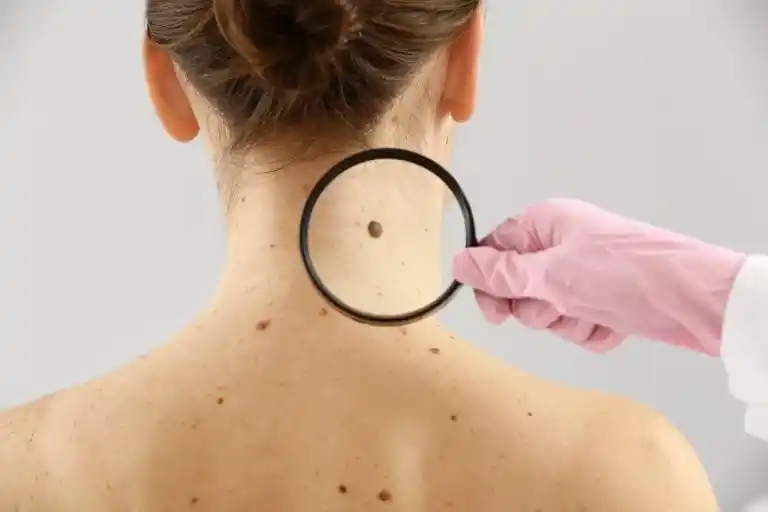Mouth cancer is an umbrella term for any type of cancer that develops in any of the parts of the mouth. It is also commonly referred to as oral cancer or oral cavity cancer. Lips, tongue, gums, roof of the mouth, tonsils, salivary glands, floor of the mouth, and internal lining of the cheeks can develop oral cancer for varied reasons.
Oral cancer is considered the most common type of head and neck cancer, which originates in the mouth but can reach different parts of the head and neck. Prompt diagnosis of the condition and suitable treatment are necessary to curb the progression of this condition.
How is Mouth Cancer Diagnosed?
Typically, a dentist or ENT specialist can recognise signs of mouth cancer during a routine examination. A comprehensive diagnostic approach is further employed to confirm the diagnosis, and check for other necessary aspects, such as the stage of the cancer, what may have caused the cancer, and other underlying conditions. The standard diagnostic approach for mouth cancer diagnosis involves:
- A physical assessment of the patient: In a physical assessment, the doctor checks the insides of the mouth as well as the surrounding structures such as the face, head, and neck.
- Incisional biopsy: An incisional biopsy involves extracting small pieces of tissue from the concerned area, and examining them in a laboratory to rule out cancer.
- Scrape or brush biopsy: In this test, the doctors use a special brush or spatula to collect cells from the suspected area. The derived samples are then sent to the lab to examine if they are cancerous.
- Indirect laryngoscopy and pharyngoscopy: This test involves the use of a small mirror with a long handle to assess the base of the tongue, through, and the larynx (voice box). This procedure helps get a 3-dimensional view of these structures.
- Direct (flexible) pharyngoscopy and laryngoscopy: To perform this test, the doctors utilise a thin, bendy tube with a light and a tiny camera on it to get a clear view of the different parts of the patient’s throat and mouth.
- X-rays: The doctors may recommend an X-ray test to check for the presence of cancer cells in the jaw, lungs, chest, or other parts.
- PET, CT and MRI scans: The purpose of these tests is to figure out the exact location of the cancer, its stage, and how far it has spread.
Mouth Cancer Treatment
A comprehensive and personalised treatment plan is chalked after a thorough diagnostic assessment of the patient. The treatment for mouth cancer relies upon the revelations of the diagnostic tests. Mouth cancer can be treated using different methods, depending on the stage of the cancer.
There are 4 stages of mouth cancer, with stage 1 being the earliest and stage 4 being the final stage. Oral cancer treatment may consist of a single treatment or a combination of different methods, depending on the requirement of the specific case.
Common mouth cancer treatment methods include:
- Surgery: An oral cancer surgery is performed for the removal of the cancerous tumour or tissue, as well as its surrounding tissue. The surgical approach varies based on the size of the tumour and the severity of the condition.
- Radiation Therapy: A radiation therapy involves the use of high-energy beams to target and kill cancer cells. Typically, radiation therapy is used after a mouth cancer surgery. However, in early stage cancers, a radiation therapy may be sufficient for treatment.
- Chemotherapy: In chemotherapy, certain drugs are administered in the patient’s body to kill cancer cells. Chemotherapy is often performed along with radiation therapy for the best outcomes.
- Targeted Drug Therapy: A targeted drug therapy works by altering cancer cell growth. It is aimed at preventing the cancer cells from growing, dividing, and spreading.
- Immunotherapy: As the name suggests, an immunotherapy boosts immune function in the body by strengthening the immune system, and helps the body fight cancer. It is typically provided in advanced stages.
Conclusion
Anyone present with signs and symptoms of oral cancer must seek immediate medical intervention for prompt diagnosis and relevant treatment. At Wockhardt Hospitals, we provide all-round care to patients suffering from any form of cancer. We have some of the most brilliant oncologists in our panel, with extensive experience and expertise in providing top-notch care for even the most complex cases of oral cancer, including the best oral cancer treatment in India. They leverage advanced medical technology to offer the best solutions. To consult with our doctors, you can reach out to our team and schedule your appointment right away.
FAQs on Mouth Cancer Treatment in India
Q. What are the causes of Mouth Cancer?
Uncontrolled tobacco use and alcohol consumption are considered the leading causes of oral cancer. Certain other factors, however, can also make a person more susceptible to developing mouth cancer. Besides these, certain other factors can also increase a person’s risk of developing oral cancer.
Q. What are the serious risk factors for Mouth Cancer?
Q.What are some common signs & symptoms of Mouth Cancer?
- White or red patches inside the mouth.
- Bleeding sores on the lips or within the mouth that have not been healing or have been there for a while (more than two weeks).
- Recurrent, unexplained bleeding in the mouth.
- Dryness and roughness in the lips, gums, and internal structures of the mouth.
- Difficulty in chewing, swallowing, speaking, or moving your jaw or tongue.
- A sense of pain, tenderness, or numbness in the mouth. This may also spread to the face and neck with no visible cause.
- A noticeable and unintentional weight loss, or feeling of weakness throughout.
- A bad breath, and earaches.


















